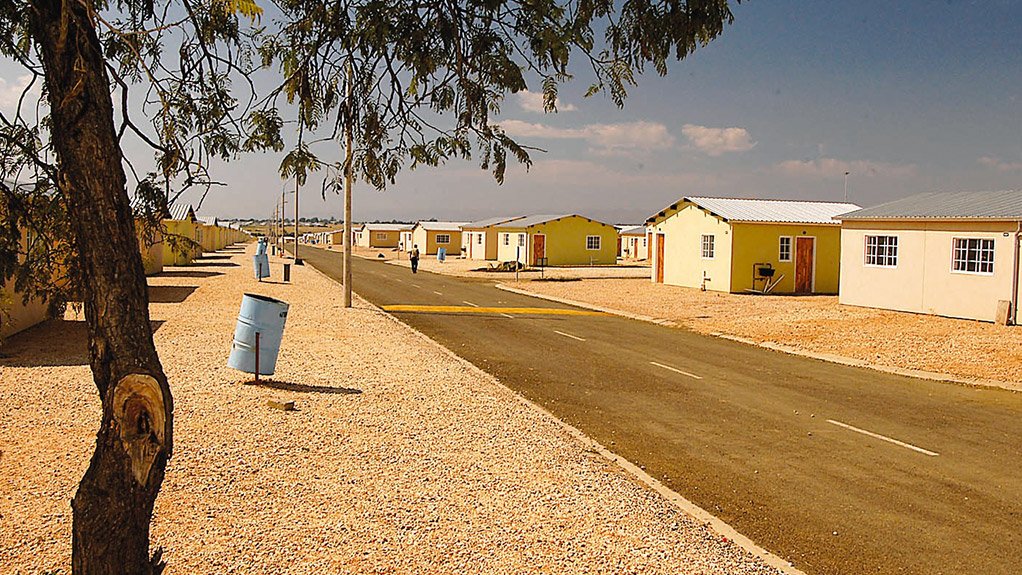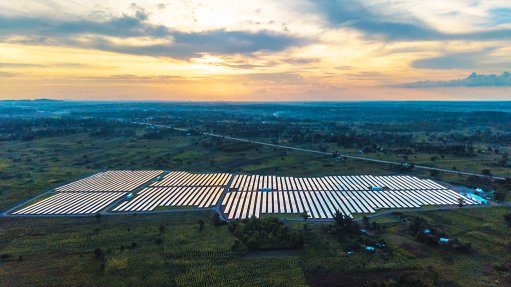South Africa gears up for Habitat III; needs to be active in global New Urban Agenda
South Africa is preparing to showcase its position at the United Nations’ (UN’s) upcoming third Conference on Housing and Sustainable Urban Development (Habitat III), where the ‘New Urban Agenda’ on human settlements and urbanisation will be adopted for the next 20 years.
The country is finalising its position and its implementation plans for the imminent new agenda, Human Settlements Deputy Minister Zou Kota-Fredericks told delegates at the opening of a two-day new urbanisation and human settlements development consultative workshop, in Boksburg.
The task team workshop forms part of South Africa’s preparatory plans and final input ahead of a pre-Habitat III Preparatory Committee to be held in Indonesia from July 25 to 27, prior to the expected adoption of the Quito Declaration in October after years of development.
Habitat III seeks to secure a renewed global commitment to addressing housing and sustainable urbanisation, with the new agenda until 2036 built on the prior two agendas of 1976 and 1996.
The Habitat III draft New Urban Agenda notes that much work needs to be done as the world’s urban population is expected to double by 2050 and, globally, there is need to capitalise on the opportunities of urbanisation as an engine of growth.
“Urbanisation must be recognised as a force of change,” Kota-Fredericks said.
There are significant emerging and existing challenges that are far from being adequately addressed, and the new agenda reaffirms the global commitment to sustainable urban development as a “critical step” in realising the 2030 Agenda for Sustainable Development vision in an integrated and coordinated manner.
“By readdressing the way cities and human settlements are planned, financed, developed, governed and managed, the New Urban Agenda will help to end poverty and hunger in all its forms and dimensions, reduce inequalities, promote sustained, inclusive and sustainable economic growth, realise gender equality and the empowerment of all women and girls, improve human health and wellbeing, as well as foster resilience and protect the environment,” the draft agenda highlighted.
Some 22 issue papers in six areas, namely social cohesion and equity – livable cities; urban frameworks; spatial development; urban economy; urban ecology and development; and urban housing and basic services, were prepared by the Habitat III task teams.
“Habitat III will produce a major UN policy document on housing, urban development and human settlements for the next 20 years,” Kota-Fredericks pointed out.
With South Africa expected to adopt the resolutions post the Habitat III conference to be held in Ecuador from October 17 to 20, she said the country needed to be “very” active in influencing and ultimately implementing the New Urban Agenda to ensure that it corrects the gaps of prior agendas, mitigates rising urbanisation challenges and harnesses the opportunities surrounding rural and urban dynamics.
South Africa’s starting point is the 1996 urban agenda; however, there are deficiencies that need to be dealt with.
Stock needs to be taken to address the shortcomings of the previous development agreements, and the lessons from the achievements built on, to address current challenges.
The new agenda should grapple with the management of urban challenges and leverage urbanisation as a force for structural transformation.
South Africa had, in preparation, developed a ‘National Report on the Implementation of the Habitat Agenda Since 1996’, with initial identification of issues and challenges resulting in the consolidated report receiving Cabinet approved in 2014 – the country’s first preparatory step for Habitat III.
Discussing the outcomes of the report, Department of Human Settlements international relations director Monika Glinzler said several identified issues were being proposed for inclusion in the New Urban Agenda.
Regarding urban demographics, there is a need for focus on rural dynamics and the acceleration of inclusive growth and employment, while prioritising youth, education and skills development.
Other focal points include HIV/Aids prevention and management, safety for women and liveable city designs, with emphasis on social development and welfare of the elderly.
She also pointed to the need for effective administration, support and legislation monitoring; however, the complexity of implementing legislation within a unitary State also needed to be recognised.
Further, additional priorities for South Africa are sustainable planning and design, the improvement of urban land management and urban sprawl and the enhancement of urban and peri-urban food production, as well as addressing urban mobility challenges and improving technical capacity to plan and manage cities.
The new agenda should also take the necessary measures to address community-level disaster risks such as poor integrated planning and public information and education programmes.
The implementation of the country’s Spatial Planning and Land Use Management Act and measures to secure land tenure for the urban poor need to be prioritised.
“[Focus also needs to narrow toward] the adoption of a developmental approach that is based on investing in people, places and jobs,” she commented.
“[There is a need to] move beyond traditional notions of building competitive cities to a stronger focus on sustainable growth, focusing on spatial economic inclusivity; targeted employment creation as a poverty reduction measure; and [the final document should] offer more partnership [opportunities] for innovative solutions to job creation for the poor.”
The last issues raised fall under housing and basic services, encouraging slum upgrading and prevention, improving access to housing, ensuring sustainable access to safe drinking water, basic sanitation and drainage, clean domestic energy and sustainable means of transport.
Comments
Press Office
Announcements
What's On
Subscribe to improve your user experience...
Option 1 (equivalent of R125 a month):
Receive a weekly copy of Creamer Media's Engineering News & Mining Weekly magazine
(print copy for those in South Africa and e-magazine for those outside of South Africa)
Receive daily email newsletters
Access to full search results
Access archive of magazine back copies
Access to Projects in Progress
Access to ONE Research Report of your choice in PDF format
Option 2 (equivalent of R375 a month):
All benefits from Option 1
PLUS
Access to Creamer Media's Research Channel Africa for ALL Research Reports, in PDF format, on various industrial and mining sectors
including Electricity; Water; Energy Transition; Hydrogen; Roads, Rail and Ports; Coal; Gold; Platinum; Battery Metals; etc.
Already a subscriber?
Forgotten your password?
Receive weekly copy of Creamer Media's Engineering News & Mining Weekly magazine (print copy for those in South Africa and e-magazine for those outside of South Africa)
➕
Recieve daily email newsletters
➕
Access to full search results
➕
Access archive of magazine back copies
➕
Access to Projects in Progress
➕
Access to ONE Research Report of your choice in PDF format
RESEARCH CHANNEL AFRICA
R4500 (equivalent of R375 a month)
SUBSCRIBEAll benefits from Option 1
➕
Access to Creamer Media's Research Channel Africa for ALL Research Reports on various industrial and mining sectors, in PDF format, including on:
Electricity
➕
Water
➕
Energy Transition
➕
Hydrogen
➕
Roads, Rail and Ports
➕
Coal
➕
Gold
➕
Platinum
➕
Battery Metals
➕
etc.
Receive all benefits from Option 1 or Option 2 delivered to numerous people at your company
➕
Multiple User names and Passwords for simultaneous log-ins
➕
Intranet integration access to all in your organisation




















